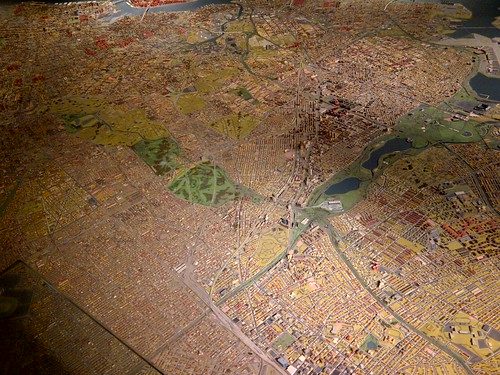The full title for Roadrunner says it all. Director Morgan Neville wanted to tell the story of the person who was/is Anthony Bourdain. It is difficult to talk about him in the past tense because he is still so present – not only on TV but in the way he influenced so many of us on what it means to travel, to be a tourist, and what food means to a culture and to each of us. Also, that was Anthony Bourdain on screen – not some persona he created.
To get one thing out of the way – especially for those who are unsure about going back to the movie theater with the C19 numbers going up again – the movie does not need to be seen on a big screen. Both CNN and HBOMax are co-producers, so it will be streaming on your TV at some point and you can wait. TV is how most of us experienced Bourdain and his personality is so big that your television expands so as to include all of him.
What stands out is how often Bourdain not only spoke about death in his shows and in interviews but how often he imagined his own death.
Like the man himself, there are controversies surrounding the film. There are two instances where Bourdain reads an email he sent. Neville used AI to reproduce Bourdain’s voice. The controversy is that he did not own up to doing that until people asked how he got a recording of Bourdain reading emails. Neville said he had Bourdain’s ex-wife and family’s permission but Ottavia Bourdain says she never knew Neville would be using AI.
The other is that Asia Argento, Bourdain’s last partner, is mentioned in the film and seen in some footage but she was never interviewed for the documentary. All his close friends and family were interviewed. This was a deliberate choice by Neville and one that some disagree with. I am not sure what she would have brought to the documentary. Some blame her – there were gossip rag photos of her with another man just before he killed himself. Others say the only person to blame is Bourdain himself. The people who worked very closely with him for years on various TV shows, say that she ruined what made his shows special. Bourdain allowed her to direct and started cutting out some of the people in his work life if they clashed with Argento. There’s one scene where he is in a restaurant (I believe in SE Asia) and one man is starting to tell a heartbreaking story of how he became a refugee. Rather than capture this moment, Argento, as director, interrupts the man and has everyone move the table a few inches so she can get a better shot. And, of course, a great moment is lost.
While the documentary focuses on Bourdain’s life, the last third of the film is about his death. Many of his friends and family break down as they talk about finding out about his suicide. Others are very angry with him.Eric Ripert, who was traveling with Bourdain and found his body, refused to talk about it.
His friends are who you think they would be – fellow cooks, musicians, artists, and writers. At the beginning there are photos of musicians and writers who he admired but none are identified. I recognized all of them but I wondered how many of his fans could name them all.
Of course, his addiction plays a huge role in his story. Not just his famed addiction to heroin, which he beat, or his addiction to cigarettes, which he did stop but then started up again, Bourdain would become addicted to anything that excited him. Like jiu-jitsu or defending Argento against Harvey Weinstein and celebrating the #MeToo movement.
At the beginning it is interesting to see him shoot the first episode of his first TV show. In Tokyo, Bourdain is shy, uncomfortable, uneasy, and not happy. But their next stop is Vietnam, where he meets up with one of the Les Halles owners and he is happy and outgoing. Vietnam becomes one of his favorite places to travel. Later, because of his fame, he could no longer walk the street or eat in a restaurant undisturbed and that bothered him. But then his fame also allowed him to see places and eat at places that he never would have been able to as just another cook.
I was lucky enough to see Anthony Bourdain in person years ago at the New York Public Library. As part of the Library’s interview series, Bourdain moderated a discussion with Mario Batali and Bill Buford. I remember a fun, funny, witty, and intelligent man and that is how I am always going to remember him.


By Carene Lydia Lopez

